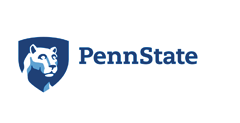Abstract
Through the Belfast Project, researchers sponsored by Boston College began to compile an oral history of the period of violent political conflict in Northern Ireland known as “The Troubles” in a series of interviews. The interviewees’ participation in the project was conditioned on a strict promise of confidentiality. However, when authorities in the United Kingdom became suspicious that the interviews contained evidence of criminal activity, the United Kingdom, pursuant to a Mutual Legal Assistance Treaty, requested the United States to subpoena the materials on its behalf. Satisfaction of the subpoena would mean not only turning over the interview recordings, but also identifying the participants. The lead researches challenged the subpoena, asserting an academic privilege to protect confidential information from compelled disclosure. Through the lens of the Belfast Project controversy, this comment argues that the United States should recognize a constitutional privilege for academic researchers and advocates the reasoning of the European Court of Human Rights when the right to freedom of expression is implicated. Finally, this comment proposes that if the Belfast Project researchers are unsuccessful in both American and European courts, the United States should decline to enforce the United Kingdom’s request because it contravenes public policy and impairs essential American interests.
Recommended Citation
Kathryn L. Steffen, Comment, Learning from Our Mistakes: The Belfast Project Litigation and the Need for the Supreme Court to Recognize an Academic Privilege in the United States, 3 Penn. St. J.L. & Int’l Aff. 324 (2014).
Included in
Diplomatic History Commons, History of Science, Technology, and Medicine Commons, International and Area Studies Commons, International Law Commons, International Trade Law Commons, Law and Politics Commons, Political Science Commons, Public Affairs, Public Policy and Public Administration Commons, Rule of Law Commons, Social History Commons, Transnational Law Commons


